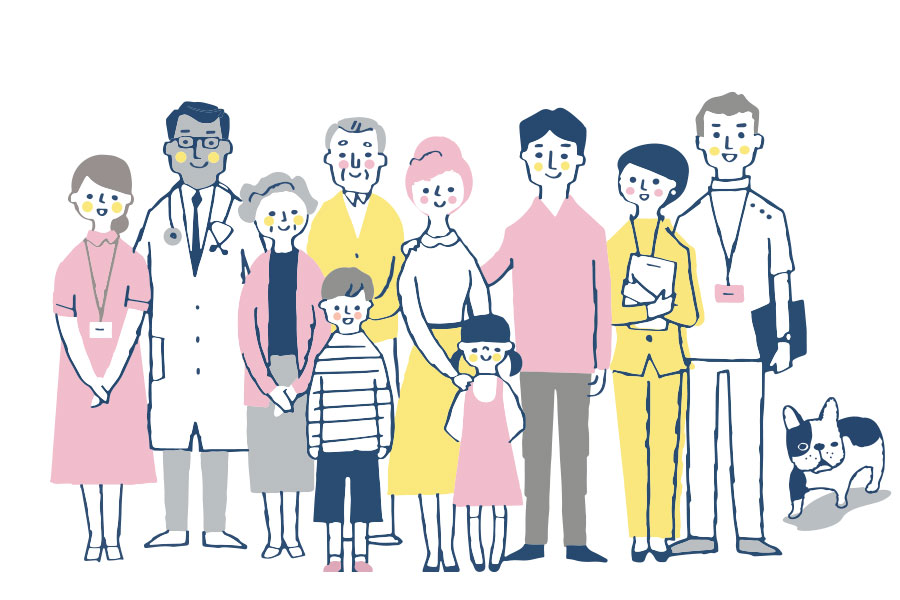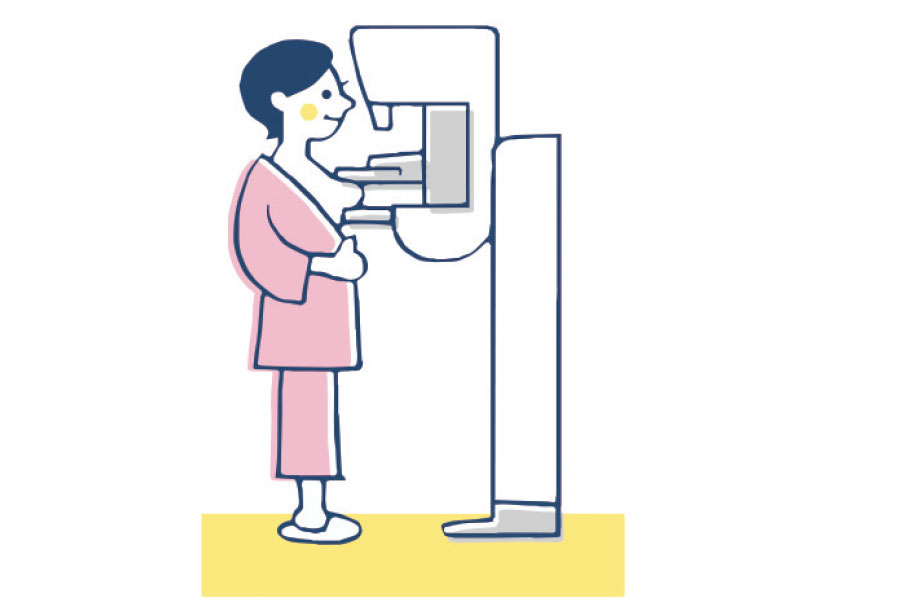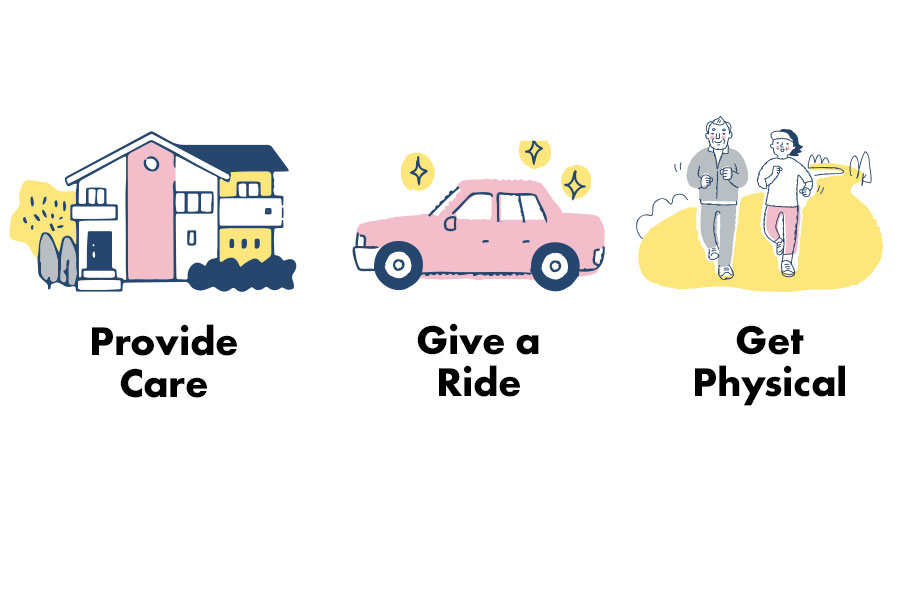Joining the Fight Against Cancer is as Easy as 1-2-3

Even while the pandemic dominated medical news and media, cancer has never taken a break. It continues to invade and impact millions of lives and remains the second highest cause of death across the United States, behind only heart disease. At the forefront of these disturbing numbers is breast cancer, which an estimated 1 of every 8 women will face in her lifetime.
There’s no guaranteed way to avoid cancer for yourself and your loved ones, but researchers are advancing treatment and prevention opportunities every day, and care networks are continuously innovating new ways of supporting patients. The fight against cancer isn’t exclusive to those facing the disease head-on or to those on the front-lines of medicine and treatment, it’s a mission that’s accessible to everyone. From monitoring your own risk, to taking precautionary health measures in your home, to investing your time and support into your community, there are ways to stand up to cancer right here in Philly.
1. Get Screened

Over the pandemic, an estimated 22 million people canceled or missed their recommended cancer screenings. Worse, as pandemic restrictions crack open, these numbers have been slow to rebound. Breast cancer, along with colorectal and cervical cancers, is yet to reach its pre-pandemic screening numbers. Across the board, this is troubling—the trouble the pandemic caused hasn’t made cancer screenings any less imperative.
Cancer screening tests are usually used to detect cancer in people with no symptoms and no reason to believe their tests might return abnormal. That means that regular screenings might simply give you peace of mind, but they might, and often do, give people much more. Screenings are key to early detection, more treatment options, improved quality of life, better treatment outcomes, and even survival. The American Cancer Society’s “I Love You, Get Screened” initiative emphasizes this importance—encouraging screening as an act of self-care and as an act of love to those around you.
The American Cancer Society (ACS) doesn’t just preach the importance of screening, they recognize the barriers people face in accessing them. Where the pandemic put up walls for nearly everyone, accessing appropriate medical care has always been an obstacle for those in underserved demographics and those without insurance. With this in mind, ACS’s Cancer Action Network in Pennsylvania advocated for and recently celebrated the allocation of over $2.5 million for the PA Breast and Cervical Cancer Early Detection Program for un- and under-insured Pennsylvanians. In conjunction with ACS’s online tool for locating practices near you that provide the screenings best for you, Philly is on the path to meet its goal of cancer screenings for everyone.
Still, you don’t know what you don’t know—a lack of awareness that a certain screening is necessary will naturally prevent you from making the appointment. Luckily, there are tools to help in this scenario, too. Online, ACS provides a detailed assessment of the recommended screenings defined across age, gender, and risk levels like lifestyle behaviors and family history. This can help you secure the proper care for yourself, and also to identify which screenings your loved ones need so that you can encourage their care as well. You’ll also find resource toolkits to help equip you for these appointments; knowing what to expect, what questions to ask, and what the significance of the exam is.
When it comes to cancer care, knowledge is power, and screenings can give you that power. In the sad reality that we can’t control where cancer happens, screenings give you a fighting chance to get ahead, and to show your loved ones that you want to stick around for them and you want them around, too.
2. Make Smart Lifestyle Choices

At least 18% of all cancers are related to behaviors including physical inactivity, alcohol consumption, and poor nutrition. These same factors account for about 16% of cancer deaths; a tragic and avoidable statistic. While there’s no one diet or exercise routine that’s bulletproof against cancer, making healthy lifestyle choices can lower your risk levels for certain cancers and help you avoid becoming a part of these harrowing statistics.
The healthy choices that may insulate you from cancer are not only simple to implement for yourself and your home, they’re also effective accountability markers for leading a healthy lifestyle overall—two birds, one stone. In the fight against cancer, you’ll also fend off heart disease and other unwanted conditions. Like getting and encouraging screenings, leading a healthy life and a healthy household demonstrates your love for those around you and your desire to stick around for them for the long haul.
ACS goes further than vague platitudes about healthy living in its recommendations for preventative health. Their online resource center provides concrete tips to maximize your body’s potential to ward off and fight specific cancers. For adults, a healthy level of physical activity consists of 150-300 minutes of moderate intensity activities—think: leisurely bike rides and walks, hobbies like tennis and yoga, and household practices like mowing the lawn—or 75-150 minutes of more vigorous intensity activity—jogs, runs, and swims, sports like soccer and basketball, and labor work like digging and carpentry—each week. However you combine your activities of choice, meeting the threshold outlined by ACS is worth your time: Being physically active is strongly linked to a lower risk of colon cancer and to lower risks of breast, endometrial, bladder, esophagus, and stomach cancers.
Additional behaviors like avoiding alcohol can also protect you from mouth, throat, liver, breast, and other cancers, as can incorporating healthy foods like vegetables, fiber, whole grains, and fruits into your diet in place of processed meat and refined sugars. It isn’t constructive to live in fear of cancer abstractly or never let yourself indulge in junk food—but you owe it to yourself and to your family to put your best foot forward in keeping cancer out of your and your family’s lives. For exercise ideas, interactive tools to identify nutritional gaps in your diet, and more healthy living guidelines for your age, gender, and risk level, visit ACS’s online toolkit.
3. Stand up to Cancer in your Community

Whether you personally know any cancer patients and survivors or not, there are brave faces fighting cancer in communities all over the country, including yours. There’s no better way to rally around and uplift these community members—friends, parents, teachers, students, siblings, coworkers, neighbors—than to show up for them in demonstrable ways. Volunteering is a cornerstone of how ACS keeps its patient support programs alive and running, and it’s a commitment that can be individualized to fit your schedule and capacity.
If you’re not sure where to begin with investing your time, talent, and resources into actionable support for those battling cancer on the front-lines, don’t worry. Around the Greater Philly area, there are ample opportunities to join the local effort against cancer, all of which you can find via the interactive and location-specific tools on ACS’s site.
For a larger-scale commitment where you’ll be providing direct support to patients, volunteers are always valued at Philly’s Hope Lodge; one of more than 30 lodges in the country dedicated to providing housing, meals, transportation, and community to patients and caregivers who have traveled to receive treatment. Volunteers work under a fully staffed care team of nurses, therapists, and administrators to provide general support to the lodge, like cooking and serving meals to patients.
The transportation offered to patients as they attend treatments and appointments is called the Road to Recovery program, and it attends to more patients than just those at the Hope Lodge—it helps connect patients throughout the Philadelphia area with reliable transportation. ACS is currently in need of more volunteer drivers for this program, and the commitment level is up to you: It ranges from offering one-time rides as requested to linking with a patient to transport them at a regular interval.
If a commitment to volunteer work doesn’t align with your schedule, there are pop-up events throughout October dedicated to showing support for breast cancer patients. This October, ACS’s breast cancer arm, Making Strides Against Breast Cancer, will be holding its largest annual event, a 3-5 mile fundraising walk, in 3 locations throughout our area. Participation is non-competitive and often a relaxing, joyful way to unite the community together around those who need our collective support and energy most. Another walk-based event, Relay for Life, will be held this October; where attendees will celebrate cancer survivors and caregivers, honor and remember loved ones, and fight back against cancer. Other options to use physical activity to show your support include runs like DetermiNation Philadelphia, where runners of all levels can demonstrate their support, participate in pre- and post-run celebrations, and take advantage of volunteer opportunities.
For more ongoing support to invest in those fighting cancer in your community and throughout the country, shop with ACS’s partners—look for the Making Strides logo on branding—or make a regular or one-time donation by visiting cancer.org/donate.
Click here to return to Think Pink.
This is a paid partnership between Think Pink and Philadelphia Magazine
